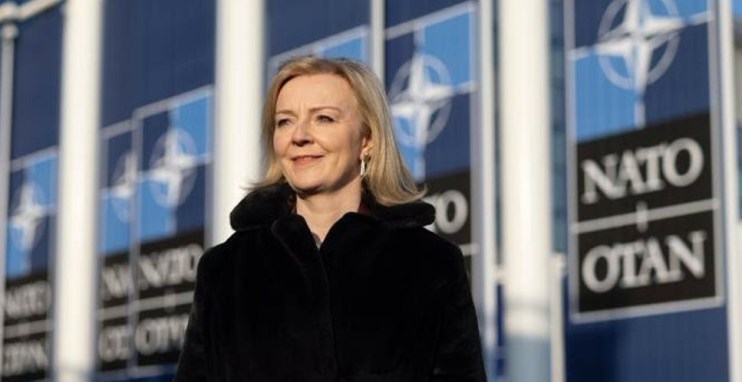Exclusive: As ‘hawkish’ Liz Truss threatens Putin with sanctions, questions emerge about UK’s enforcement agency

As the West, led by President Biden, threatens Russia with far-reaching sanctions in case Putin does order an invasion of Ukraine, questions are raised about the UK’s sanctions enforcement agency. As it turns out, it has only handed out six fines in the last six years.
In fact, the six fines by the agency, OFSI, totalled less than £21m since it was formed in 2016.
With the UK on the verge of imposing a greater number of more restrictive sanctions on individuals and businesses with close links to Russia due to the unfolding situation in Ukraine, there is growing pressure on the body to toughen its enforcement processes in order to become more effective.
Some critics have pointed out that, of the hundreds of potential sanctions breaches to have been reported to OFSI in recent years, only a handful of organisations have been issued with a financial penalty.
Monetary penalties are typically only reserved for the most serious breaches.
However, other leading sanctions experts have argued that the body has actually been relatively effective in establishing a UK-only approach to investigating potential sanctions breaches in a relatively short timeframe.
The UK previously fell under the EU’s sanctions regime until Brexit.
“Since the OFSI was set up, and particularly since the UK left the European Union, the agency has been partially successful at enforcing financial sanctions and coming down hard on obvious breaches,” explained Leigh Hansson, partner at international law firm Reed Smith.
Hansson told City A.M. this weekend: “However, as with all new government bodies and agencies, it takes time to get the right structures and processes in place in order to work effectively, especially when dealing with something as complicated as financial sanctions.
“Therefore, some of the criticism directed at OFSI does seem to be rather unjust,” she stressed.
Liz Truss ‘hawkish’
On Monday, Foreign Secretary Liz Truss said that the UK is to bring in further sanctions against Russian organisations and individuals should the country invade Ukraine.
This has led to commentators suggesting that the UK approach to sanctions is now falling more strongly in line with the traditionally robust stance of the United States and further away from the approach of the European Union.
Hansson added: “Unlike EU states, who are hampered by the slow process of gaining consensus among fellow members to impose sanctions, the UK is now no longer hamstrung by such restrictions and has the ability to be more agile in its sanctions regime going forward.”
“Under hawkish UK Foreign Secretary Liz Truss, the direction of the UK’s sanctions regime is now likely to move far closer to the more aggressive stance typically adopted by the United States, with more companies and individuals in Russia likely to be brought into scope of restrictions.”
Leigh Hansson, Partner at international law firm Reed Smith.
Hansson also pointed out that businesses currently undergoing business deals with Russian organisations need to take steps to ensure that they are not going to be left in a difficult position should further, and more stringent, sanctions be imposed on Russian companies.
“UK companies should expect that business dealings involving Russia will become more complicated in the very near future,” she continued.
“Whilst a full-scale embargo similar to the one the United States has in place against Iran is not expected, or personal sanctions against Vladimir Putin, as President Biden is apparently considering, there may be a tightening on dealings with certain energy companies and financial institutions,” Hansson said.
“However, as it stands, it’s unknown whether these sanctions would have any wind down or ‘grandfathering’ provisions to allow existing business to continue with designated companies for at least some period of time. More clarity from the Government in this regard is therefore urgently needed,” she concluded.